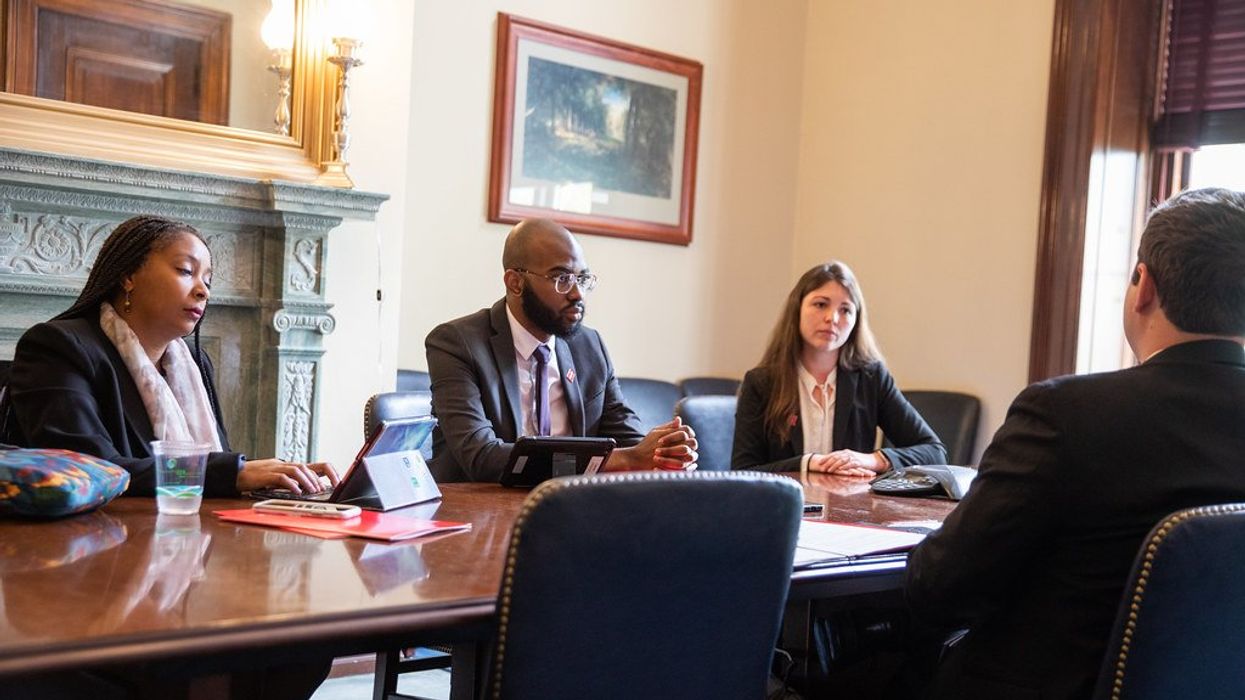Daley-Harris is the author of “ Reclaiming Our Democracy: Every Citizen’s Guide to Transformational Advocacy ” and the founder of RESULTS and Civic Courage. This is part of a series focused on better understanding transformational advocacy: citizens awakening to their power.
In a Washington Post column in early July titled, “ It’s time to ask: Can America still produce great leaders? ” Garrett M. Graff asks, “So, what does good leadership look like in practice? How do we find good leaders, and how are they trained and shaped?. … And, desperately, how can we please make more of them?” While Graff’s focus is on leaders in politics, government and business, my focus is on citizen leaders and the organizations that train and shape them. But we ask similar questions.
Recently I spoke with activists who got their start in transformational advocacy in Chicago and Nashville. Since so many of us find it hard to get started, I wanted to know how they began.
Fred LeMay was a commercial insurance underwriter and saw how changes in the climate were affecting the insurance and reinsurance markets. “I was reading climate articles,” he said, “and getting concerned for my kids and grandkids and the future of the planet. I thought maybe I should try to be more active.” LeMay co-leads the Middle Tennessee chapter of Citizens’ Climate Lobby.
Cindy Levin was a mechanical engineer and corporate type. “When I quit my job to provide full-time care for my kids, I lost my social network and my purpose,” she told me. “I did have this purpose to be a mom, but it was also isolating. Activism was a way to be relevant in the wider world.” Levin is now an author, speaker and activist who coaches others on how to develop relationships with their elected representatives. She received much of her training from RESULTS, the grassroots anti-poverty lobby I founded in 1980.
These volunteer activists and thousands of others benefited from the brilliance of another activist, Dorsey Lawson, who died recently at age 95. A giant in the early days of RESULTS, Lawson and the team of volunteers she built around her in Pasadena, Calif., in the 1980s were our research and development department.
They developed the laser talk — a short statement about a problem, examples of solutions and a call to take specific action — that advocates use in meetings with members of Congress, the media and others they want to mobilize.
Lawson and her fourth grade English as a Second Language class devised the process for teaching the laser talk — delivering the talk, then asking leading questions and having the group shout out the answers to see what they remember, and then asking the questions again and having them just think the answers to themselves. Learning and using laser talks is a key strategy in the work of effective grassroots advocacy organizations such as RESULTS and Citizens’ Climate Lobby.
RESULTS’ pioneering work around building a relationship with a member of Congress who opposes a global poverty bill you are advocating for and bringing them on board as a supporter also came from Lawson and her team of volunteers, starting more than 40 years ago with their Rep. Carlos Moorhead (R-Calif.).
The commitment to encouraging breakthroughs, to encouraging volunteer activists to move out of their comfort zone, was given voice by Lawson too.
While I was on one of my 21-city trips to start RESULTS groups in 1984, Lawson — writing in her role as assistant executive director — described one volunteer’s splitting headache and another’s feeling of nausea while completing op-eds they’d been invited to write.
“If you’re scared to do this kind of stuff, know that we are too,” Lawson wrote. “I felt flushed and feverish driving off to a reception for forty people with Rep. Matthew Martinez (D-CA). If you don’t have any discomfort, look at what would be a stretch for you. RESULTS is people breaking through the thought, ‘I don’t make a difference,’ to emerge as community leaders. Those who have pressed themselves to new heights of participation know the joy of this. What’s next for you?”
As always, she signed the letter, “Love, Dorsey.”
Lawson knew that joy followed the discomfort. She knew that it mattered to make big asks of volunteers — it mattered to the issue they cared about, and it mattered to the volunteers themselves.
When Lawson’s group developed the laser talk in 1984, UNICEF reported that 40,000 children around the world were dying every day from malnutrition and preventable disease, things like measles coupled with malnutrition. RESULTS volunteers have lobbied on these issues every year for the last four decades. Over that period, the latest figures show a 66 percent decline in global child deaths, a greater than 90 percent decline in deaths from dehydration and an 80 percent decline in child deaths from vaccine-preventable diseases.
Graff asked, “How do we find good leaders … how are they trained and … how can we please make more of them?” The innovations that Lawson and her team developed are one answer to Graff’s question. The difference she made with her life lives on in tens of millions of children’s lives saved and thousands of activists’ lives changed and will contribute to building more leaders well into the future.




















Trump & Hegseth gave Mark Kelly a huge 2028 gift